公式サプライヤー
公式および認定ディストリビューターとして200社以上の開発元から正規ライセンスを直接ご提供いたします。
当社のすべてのブランドをご覧ください。
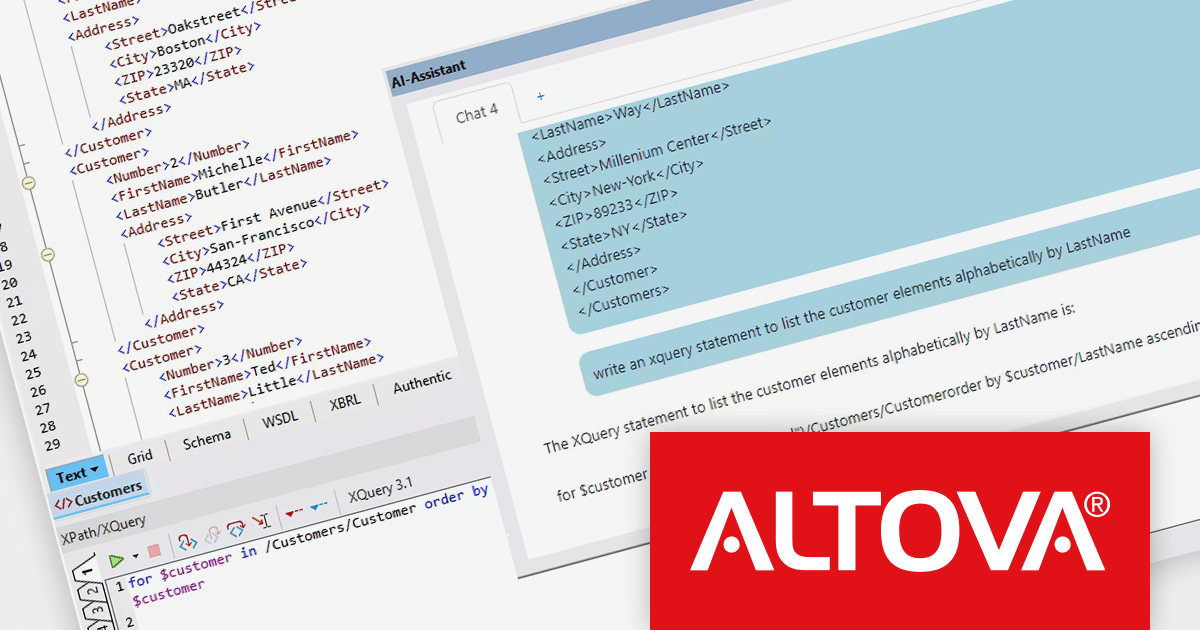
Altova XMLSpy is a JSON and XML editor for modeling, editing, transforming and debugging related technologies. It includes a graphical schema designer, code generation, file converters, debuggers and profilers for working with XSD, XSLT, XQuery, XBRL and SOAP.
Version 2024 includes a new AI Assistant designed to help developers create XML and JSON documents more efficiently by generating code based on natural language prompts. For example, a developer could ask the AI Assistant to create an XML Schema for storing financial transactions, or to generate an XSL transformation that lists all root elements from the active XML file. The code corresponding to your prompt is auto-generated by ChatGPT directly in XMLSpy.
XMLSpy's AI Assistant helps developers of all skill levels to be more productive and creative by allowing them to generate XML or JSON schemas, sample instances, XSL or XQuery code, and more using straightforward requests. This frees up developers to focus on more complex tasks, saving time and driving innovation.
To see a full list of what's new in version 2024, see our release notes.
Altova XMLSpy XML Editor is available to buy in the following products:
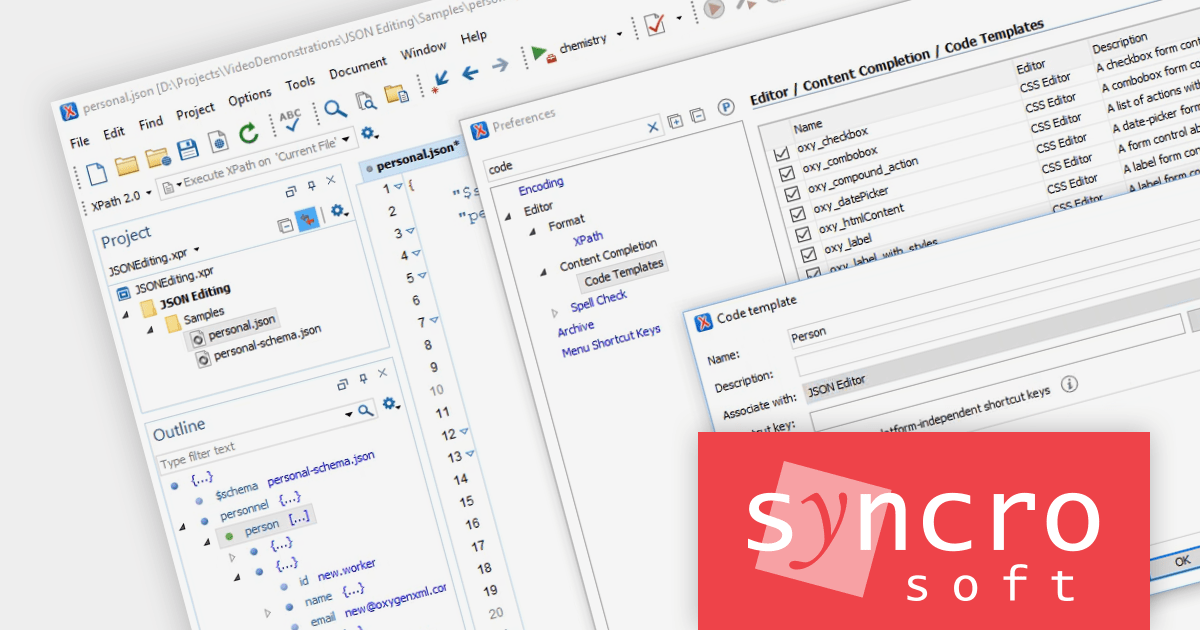
Oxygen JSON Editor is a powerful new tool that offers a comprehensive set of features for editing JSON documents. It includes text, grid, and author editing modes, design mode for JSON Schema, outline view, content completion assistant, JSON validation, and JSON transformations and queries.
These features can help developers and JSON users of all levels to edit JSON documents more quickly, accurately, and efficiently. The grid editing mode makes it easier to add, edit, and delete data in JSON documents. The content completion assistant aids in reducing errors and speeding up coding by suggesting values and property names as the user types. The JSON validation feature helps to ensure that JSON documents are well-formed and valid.
For more information, visit our Oxygen JSON Editor product page.
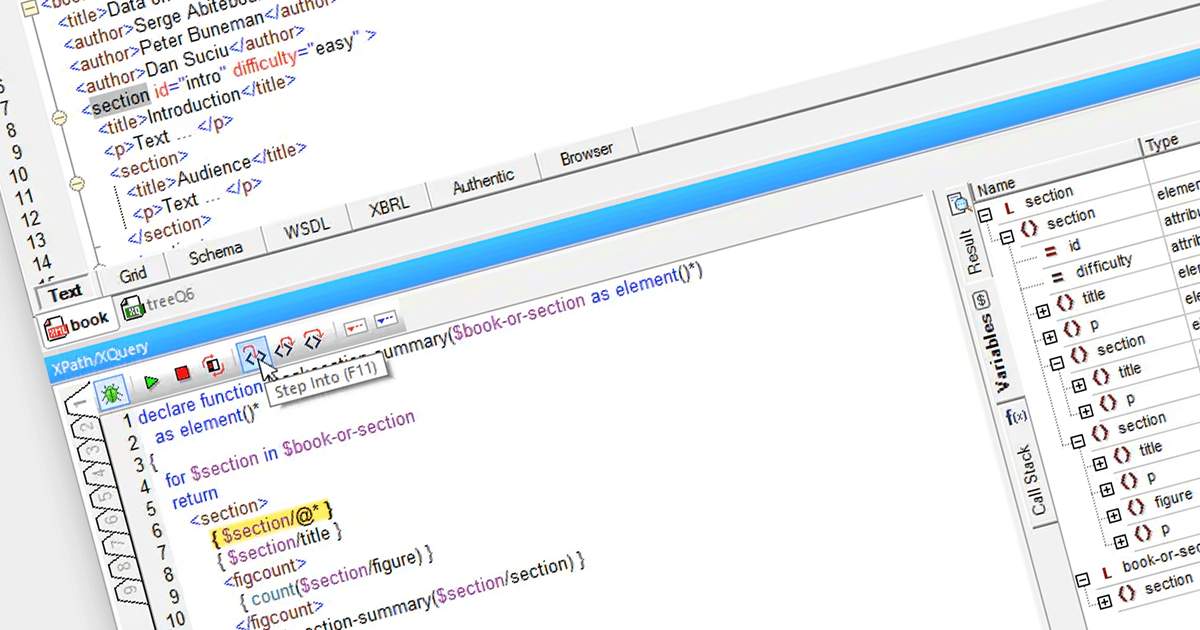
An XPath analyzer is a tool used for examining XML or HTML documents by interpreting XPath expressions. This enables streamlined data extraction and manipulation processes, proving particularly useful for tasks such as Web scraping, data mining, and XML parsing. By interpreting the specified XPath queries, the analyzer locates specific elements, attributes, or patterns within documents, contributing to efficient data retrieval and structured analysis.
Here are some XML tools that provide an XPath analyzer:
For an in-depth analysis of features and price, visit our comparison of structured document tools.
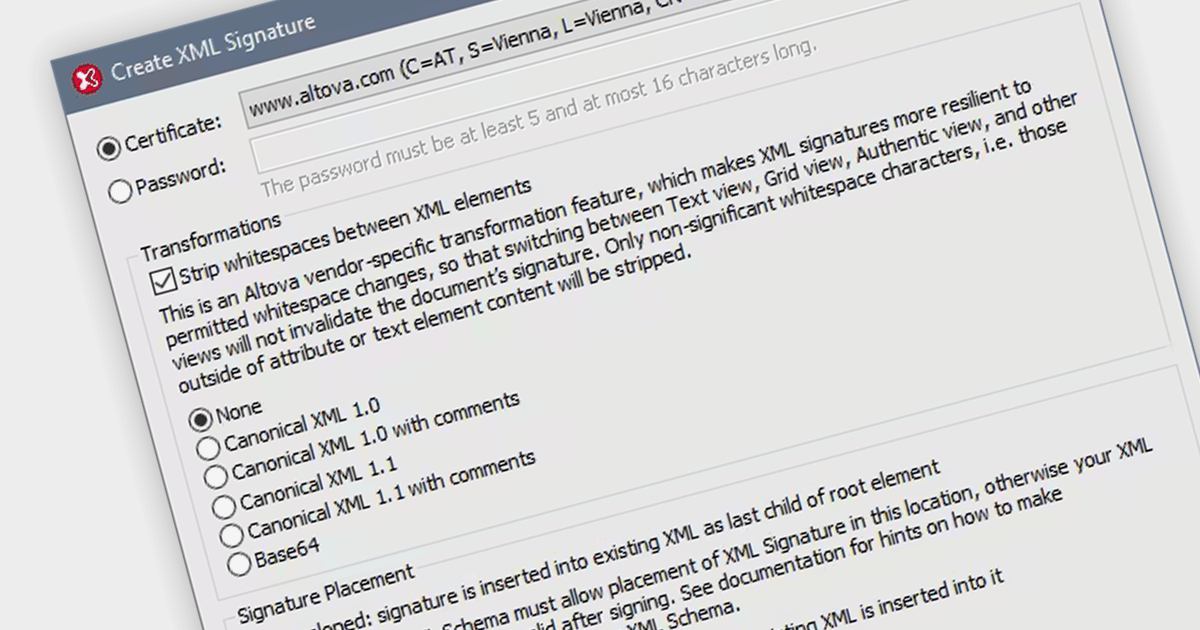
Canonicalizing XML files involves transforming them into a standard form, removing insignificant or non-meaningful differences, such as white spaces or attribute order, ensuring consistent representation and standards-compliance. Standardizing files helps to work with XML data more efficiently and effectively.
Several XML tools allow you to canonicalize XML files, including:
For an in-depth analysis of features and price, visit our comparison of structured document tools.
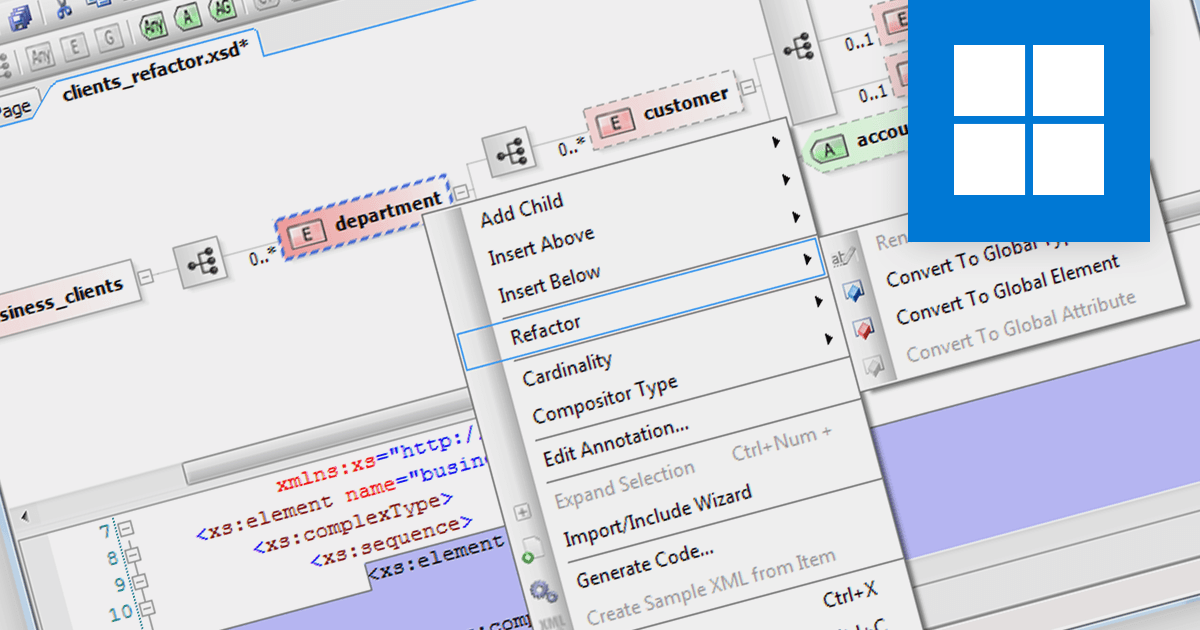
Refactoring XML is the process of restructuring and optimizing XML code to improve readability, maintainability, and performance, while preserving its functionality. It involves changing the layout, element naming, removing redundancies, and reorganizing the document to enhance its overall quality. This can be achieved by using a structured document tool, designed to create, edit, and manage documents.
Several structured document tools support refactoring, including:
For an in-depth analysis of features and price, visit our comparison of structured document tools.